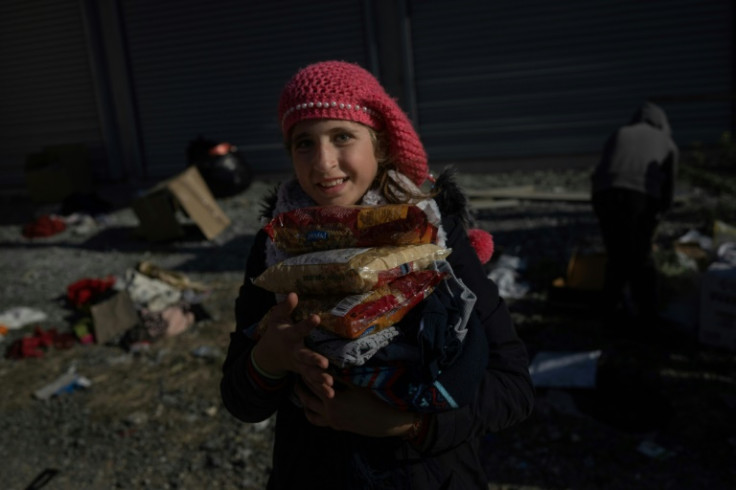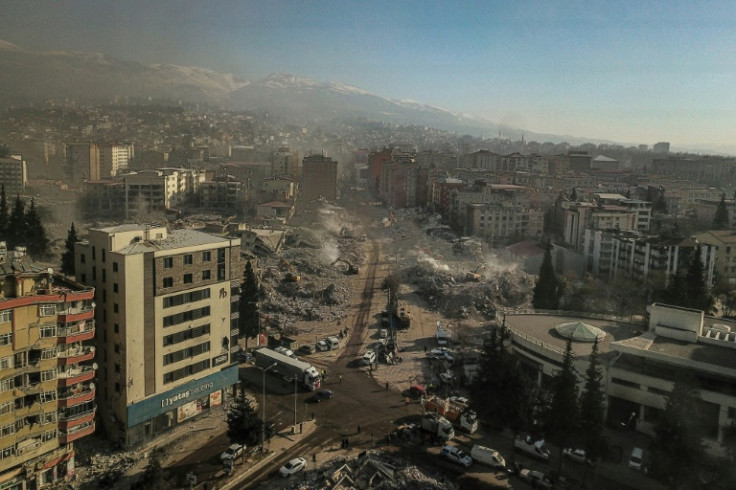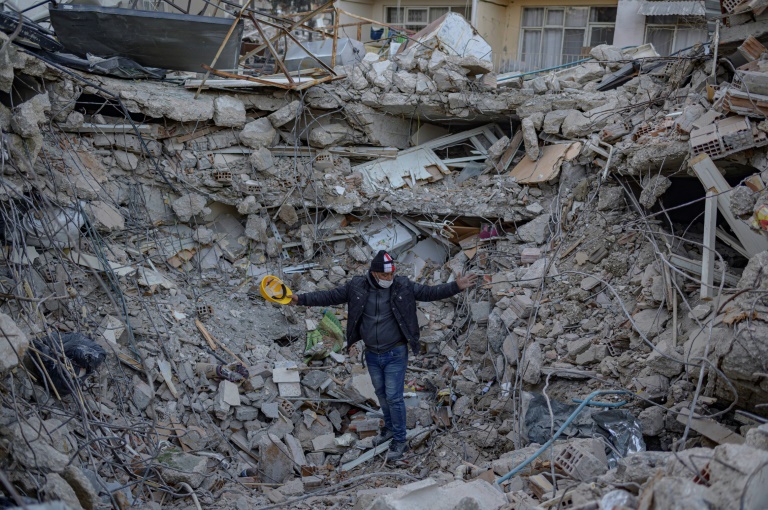AFP
Dozens of arms frantically reach for heaters and blankets handed out by a private donor, illustrating the desperation and rage gripping swathes of Turkey 11 days after its disastrous quake.
Many in the Syrian border region town of Samandag listened to their relatives and friends slowly die under the rubble as they waited for rescuers who came too late.
And those who survived the February 6 disaster have been living on the streets, freezing when the winter temperatures plunge after dark.
Hasan Irmak saw five family members — including his six-year-old daughter Belinda — buried under his flattened house.
“She was alive for two days,” the 57-year-old said of his daughter.
“I was talking to her in the ruins. Then she lost all her energy. On the third day, she was dead. Help arrived on the fourth.”
President Recep Tayyip Erdogan has pushed back hard against accusations that his government floundered in its response to Turkey’s deadliest natural disaster of modern times.
The 7.8-magnitude tremor and its aftershocks have claimed the lives of more than 36,000 people in southeastern Turkey and nearly 3,700 in Syria.
Erdogan has admitted to some initial “shortcomings” that he blamed on stormy weather and quake-damaged airports and roads.
But he has also argued that he has now mobilised the full force of the state to help millions of victims who were left either homeless or displaced.
Samandag’s much bigger neighbour Antakya — an ancient city of nearly 500,000 people that was almost completely destroyed — is starting to receive its first shipments of government aid.
But the people of 40,000-strong Samandag have been fending for themselves and accepting handouts from private campaign drives.
Hasan survived, but since the first pre-dawn tremor he feels he is not really living.
“We have no water, no toilets, no medicine, no doctors. I have been wearing the same clothes for eleven days,” he said.
He buried his relatives without anyone’s help. Some of the survivors have been living in a small metal cabin that Hasan built himself.
“I have 25 liras left ($1.35) for my family,” Hasan said. “The government said they would help us financially. But nothing came.”
Semir Ayranci’s house in Samandag survived seemingly unscathed.
But the government is barring people across quake-stricken regions from moving back into surviving buildings until proper assessments are made.
This has forced Ayranci and his 23 relatives to move into a tent on an adjacent plot of land. They eat whatever well-wishers ferry in by truck.
Ayranci bitterly compares himself to a “third-class citizen”.
“All these distributions are private initiatives. We have been abandoned by the state,” he said.
Yet this sense of solitude has prompted many to pull together and start helping each other out any way they can.
One baker used an appeal on social media to secure huge supplies of flour. He is now working hard to provide free bread.
A steamroller was levelling ground before installing mobile homes and tents provided by a generous donor.
And four women were peeling potatoes for a neighbourhood soup kitchen.
“There is no state. We are all volunteers,” potato peeler Seal Yuves said.
“Eleven days have already passed,” said the 44-year-old. “It’s terrible.”

AFP

AFP






